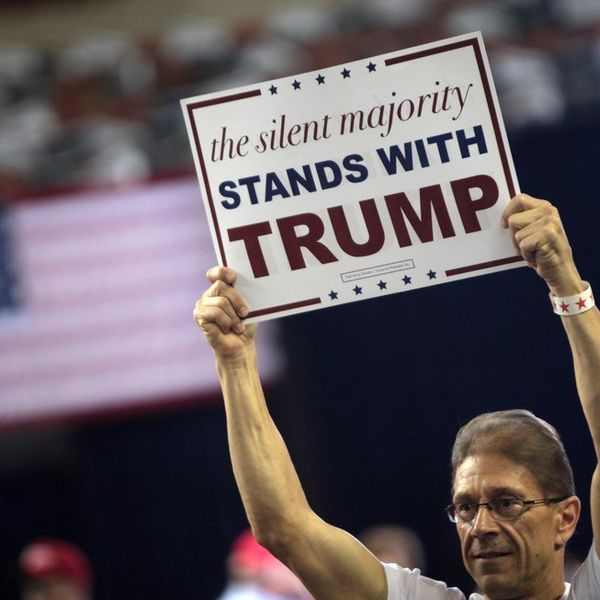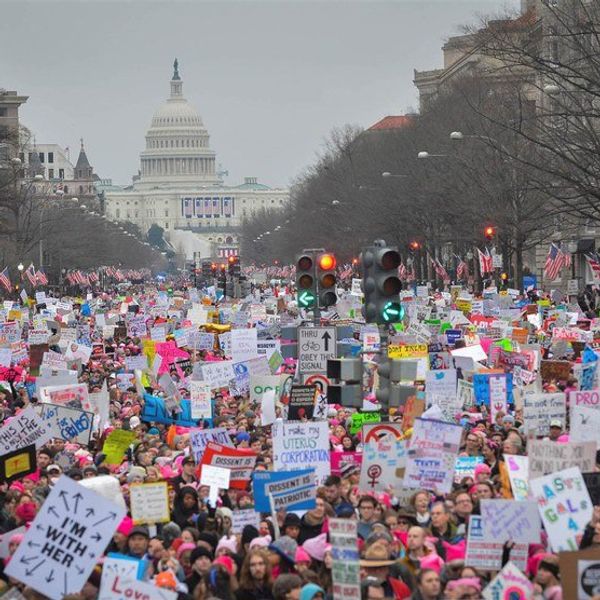I have to make a confession: I loved The Apprentice. I binge watched season after season during my holidays in high school. While in public I made sweeping declarations about how inferior reality television was to cerebral dramas like Mad Men and True Detective, I’d privately consume the cookie-cutter competition format show compulsively. I don’t know what it is about this show that drew me in against my etter instinct, but it’s obvious that whatever it was, it had the same effect of millions of people - it is this show that made Donald Trump a household name the world over. Even more cringe worthy in retrospect is the tinge of disappointment I felt when Donald Trump declared his intentions to run for president: I’d heard him toy with the idea in past election cycles, and each time he did he promised that he’d put the show on hold, or cancel it altogether, if he did decide to run. As I watched him come down the escalator for that initial press conference, I knew that that meant that there would be no new season of Apprentice for the year, to my dismay.
I couldn’t have guessed that six months later I’d see him in person, nor could I have guessed how much would have changed about how I’d feel about him.
I was standing behind a rope line in the middle of an auditorium in Sioux City, Iowa, as Mr. Trump gave autographs and shook the hands of those that had braved the Midwestern winter for hours to see him. A young black person stands out in a Republican rally in Iowa, and as the friends who travelled with me can attest to, he spotted me in the crowd, and seemed genuinely pleased to see me there. “Hey there, how are you? Good to see you. Thanks for coming out!” he said, offering a fist bump. After reciprocating the courtesy, I hopped on the chance to scrutinize his proposition to ban Muslims from entering the country, and the implications that the First Amendment’s assertion that the government shall “pass no law impeding on the free exercise of religion” would have on such a law. His tone immediately changed, and he more or less shrugged my questions off as he continued down the rope line.
The truth is, even for those that are deeply disturbed by his disgusting indictments of Hispanics and Muslims, his flirtations with bigoted conspiracy theorists and open racists, and his encouragement of violence towards protestors and activists, Trump is interesting to watch. Donald Trump is oddly charismatic – whether it’s on t.v, in a rally, or even from the little I can tell, in person. America’s fascination with him has only grown as the years passed, and his foray into politics only seemed to be the latest exercise of the Kardashian-esque allure he inspires. It wasn’t until his campaign saturated the media with outrageous and often offensive statements, or rather when his campaign for the Republican nomination began notching wins in state primaries, that fascination turned to alarm. Now the unthinkable has happened: Trump is the Republican nominee, and weeks later, the GOP is still recoiling from the shock.
What surprises me the most about the Trump phenomenon is how much credit Mr. Trump is given for it. Don’t get me wrong, he has played his cards masterfully, and it has paid off for him. But the Republican elites should not pretend to be surprised that Trump’s message resonates and translates into votes. The voters who do agree that America needs a wall to keep illegal Mexican immigrants out and a ban against Muslims are not a fringe group – they are, and have been, an important part of the Republican coalition, and they are having their say. “Minorities are taking things from you” has been a key part of Republican rhetoric for decades, because that has been the selling point for a key class of voters. Anti-minority rhetoric is a critical part of creating the siege mentality that has kept these voters voting Republican since before I was born. In the 1960s, while likely not a racist himself, Barry Goldwater courted the anti-Civil Rights, far right elements of the party, successfully catapulting himself into the Republican nomination (and even earning the endorsement of the Alabama chapter of the Ku Klux Klan). Both Nixon and Reagan followed in suit to varying degrees, playing into fears of civil unrest in the tense racial atmosphere that the aftermath Jim Crow and segregation left behind. Since Goldwater, each Republican candidate has had to court this element of the party, and gradually, the message required to court that element has become more and more extremist. Now they have won the heart and soul of the GOP, and they speak with one voice, and that voice is firmly calling for a Trump Presidency.
The Trump show may be overshadowing the rest of the Republican party, but if you listen closely, this isn’t just Trump. Ted Cruz proposed having police patrol Muslim neighborhoods. Ben Carson said that he believes that Islam is “incompatible with the constitution” and that he opposed ever having a Muslim president. In the last election cycle a recording was released exposing the last Republican nominee, Mitt Romney’s diatribe about the “47 percent” reliant on government for handouts, and called, food, housing and healthcare “entitlements”. Republican candidates in both Presidential and congressional races have made a habit of courting Neo-confederates and ethnic nationalist movements during election season. Why, then, are we surprised that this is the natural progression of the party? The consistent scapegoating of minorities is and has been an integral part of the Republican strategy, and the distrust minorities have had for Republicanism has only been fueled and affirmed by Trump’s rise. Trump isn’t an external force possessing the Republican Party, he is the Republican Party. Exorcising the elements that support him means changing the identity of the party as a whole.
The GOP, however, must find a way to do so lest this be its legacy. As young people watch this campaign, and as many American millennials prepare to vote for the first time, the GOP threatens to brand itself permanently in their minds. The case may be made that more than any other voting demographic, the GOP should be mindful of the impression they leave on those with many, many more voting cycles left.





















